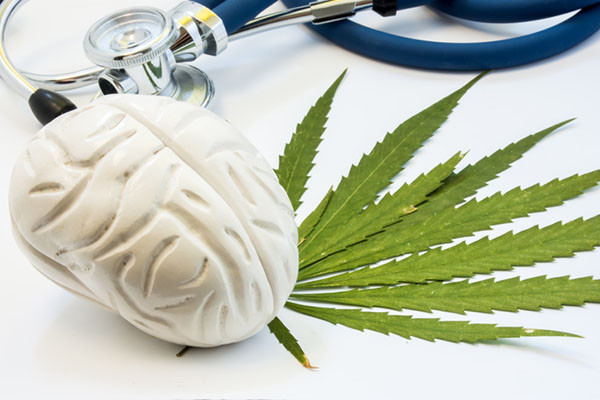Delta 8 THC has quickly become a rising star in the world of cannabis products. Known for its milder psychoactive effects compared to Delta 9 THC, Delta 8 is often consumed in edible form, with gummies being the most popular choice. These gummies provide a convenient, discreet, and flavorful way to experience the benefits of Delta-8.
However, one of the most frequently asked questions among users, especially those concerned about drug testing or long-term effects, is: How long do Delta 8 gummies stay in your system? The answer is not straightforward, as it depends on several individual and biological factors.
Understanding how Delta 8 works in the body, its metabolic pathway, and how it compares with other cannabinoids like CBD oil can help clarify this question.
To begin with, Delta 8 THC, like other cannabinoids, is fat-soluble. This means it binds to fat cells in the body rather than dissolving in water. When you ingest Delta 8 through gummies, it undergoes a process known as first-pass metabolism.
This occurs in the liver, where the compound is broken down into metabolites before entering the bloodstream. These metabolites are what drug tests typically look for, not the THC itself. Once processed, Delta 8 THC and its byproducts are stored in fatty tissues and gradually released over time.
Factors That Influence How Long Delta 8 Stays in Your System
The duration that Delta-8 remains in your system varies widely depending on several personal factors. The most significant of these include frequency of use, dosage, metabolism rate, body fat percentage, hydration level, and general health.
For someone who uses Delta 8 gummies occasionally, the compound may be detectable in their system for only a few days. However, regular or heavy users might retain Delta 8 metabolites for several weeks.
When it comes to drug testing, Delta 8 poses a specific concern. Most standard drug tests are not designed to differentiate between Delta 8 and Delta 9 THC. As a result, both can trigger a positive outcome. Urine tests, which are the most common, can detect THC metabolites for up to 3 days in occasional users, 5 to 10 days in moderate users, and up to 30 days or more in chronic users.
Saliva tests typically detect recent use, usually within 24 to 72 hours. Blood tests have a shorter detection window, generally ranging from a few hours to a couple of days, while hair follicle tests can detect THC metabolites for up to 90 days.
The method of consumption also plays a crucial role in determining how long Delta 8 gummies stay in the system. Unlike inhalation methods such as vaping or smoking, edibles like gummies take longer to kick in, usually between 30 minutes and two hours.
However, they also tend to stay in the system longer. This is because cannabinoids are absorbed through the digestive system and metabolized by the liver, resulting in a slower onset and extended duration. Therefore, if you consume Delta 8 in gummy form, expect it to linger in your body longer than if you had vaped it.
The Role of CBD Oil When Using Delta 8
Interestingly, many people who use Delta 8 also incorporate CBD oil into their wellness routines. While CBD and Delta 8 are both cannabinoids derived from the cannabis plant, they interact with the body in different ways. CBD oil is non-intoxicating and does not bind strongly to the CB1 receptors in the brain, which are responsible for the psychoactive effects of THC.
Instead, CBD influences the endocannabinoid system indirectly and offers a wide range of therapeutic benefits, including reducing anxiety, inflammation, and pain. While CBD oil won’t make you feel high, it can play a role in moderating the effects of Delta 8.
Some users even report that using CBD oil alongside Delta 8 helps balance the experience, making it more tolerable and less intense. Additionally, CBD may aid in speeding up the metabolism of THC compounds, although more research is needed in this area.
That said, if you are using Delta 8 and CBD oil together and are concerned about drug testing, it’s important to note that while CBD itself won’t trigger a positive result, the presence of Delta 8 can. Most CBD products are labeled as THC-free or contain trace amounts of THC below the legal limit of 0.3%, but cross-contamination or mislabeling can still be a risk if not sourced from a reputable brand.
Lifestyle and Health Factors That Affect THC Retention
Individual biology also plays a significant role in the retention of cannabinoids. Metabolism speed is the most essential factor. A person with a fast metabolism will typically eliminate Delta 8 metabolites more quickly than someone with a slower metabolic rate. Age, activity level, diet, and even liver function can all influence metabolic speed.
For example, someone who exercises regularly and maintains a healthy lifestyle may flush out Delta 8 faster than someone who is sedentary. Body fat percentage also matters because THC and its metabolites are lipophilic, meaning they are stored in fat cells. This is why people with higher body fat percentages may retain these compounds for more extended periods.
Hydration and diet can also affect how long Delta-8 stays in the system. Drinking plenty of water helps the body flush out toxins and metabolites through urine. A high-fiber diet can support liver and digestive function, aiding in the elimination of waste products.
However, no detox method will provide instant results, especially if Delta 8 has been used frequently. Despite common myths, there is no surefire way to remove THC from your system overnight completely.
When comparing Delta 8 to other cannabinoids, such as CBD oil, it’s essential to understand that they may coexist in the body but behave differently. CBD is often praised for its ability to help people manage anxiety, improve sleep, and reduce chronic pain without the intoxicating effects of THC.
It is also generally not a concern in drug testing scenarios because most tests are not designed to detect CBD. However, because Delta 8 and CBD are both derived from cannabis, it’s essential to verify the composition and purity of any product you use, especially if you’re subject to drug screening.
The increasing popularity of Delta-8 gummies has led many to explore how they fit into their wellness routines. Whether used for relaxation, sleep support, or mood enhancement, understanding how extended Delta 8 stays in your system can help users make informed decisions, especially if they are combining it with other cannabis products like CBD oil. As with any substance, responsible use, awareness of legal implications, and knowledge of your own body’s response are essential.

